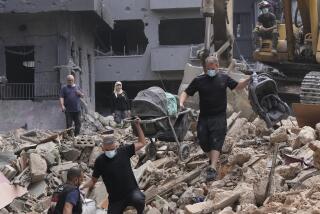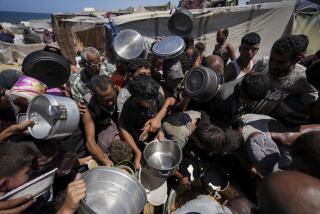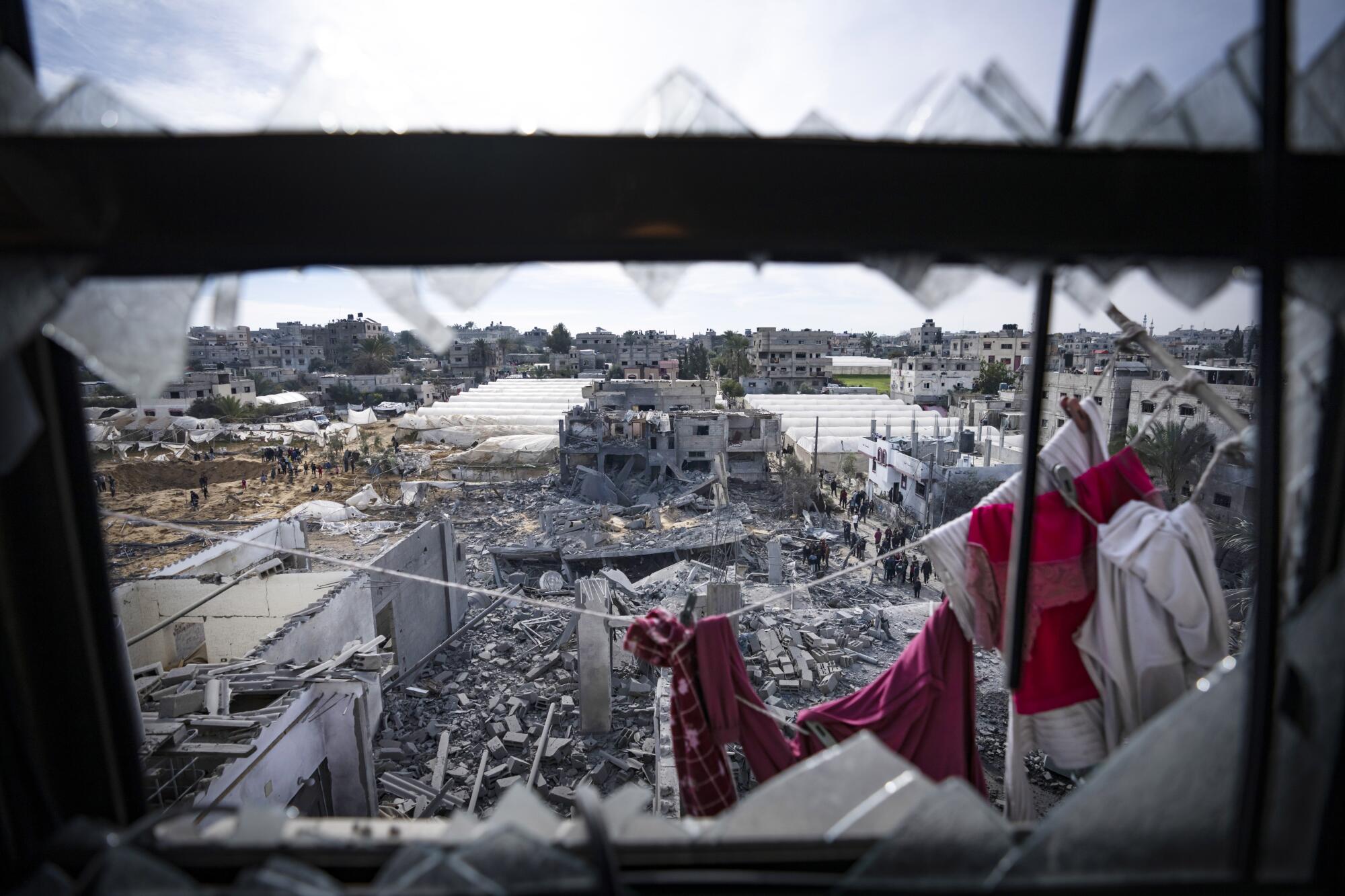
- Share via
RAFAH, Gaza Strip — Standing before an open gap where the windows of her family’s sixth-floor apartment were blown out, Sara Ashour watched the bombing of Rafah move ever closer Monday.
“We began to wonder when the roof would fall over our heads,” the 23-year-old marketing content writer said. “We’re high up, so we could see everything in front of us like a live broadcast. ... I wouldn’t wish a night like this even on the Israelis.”
Israeli officials described the hourlong barrage in Rafah as a “diversion,” to allow a special forces team to mount a rescue operation of two hostages. At least 74 Palestinians were killed in the process, Gaza health authorities said.
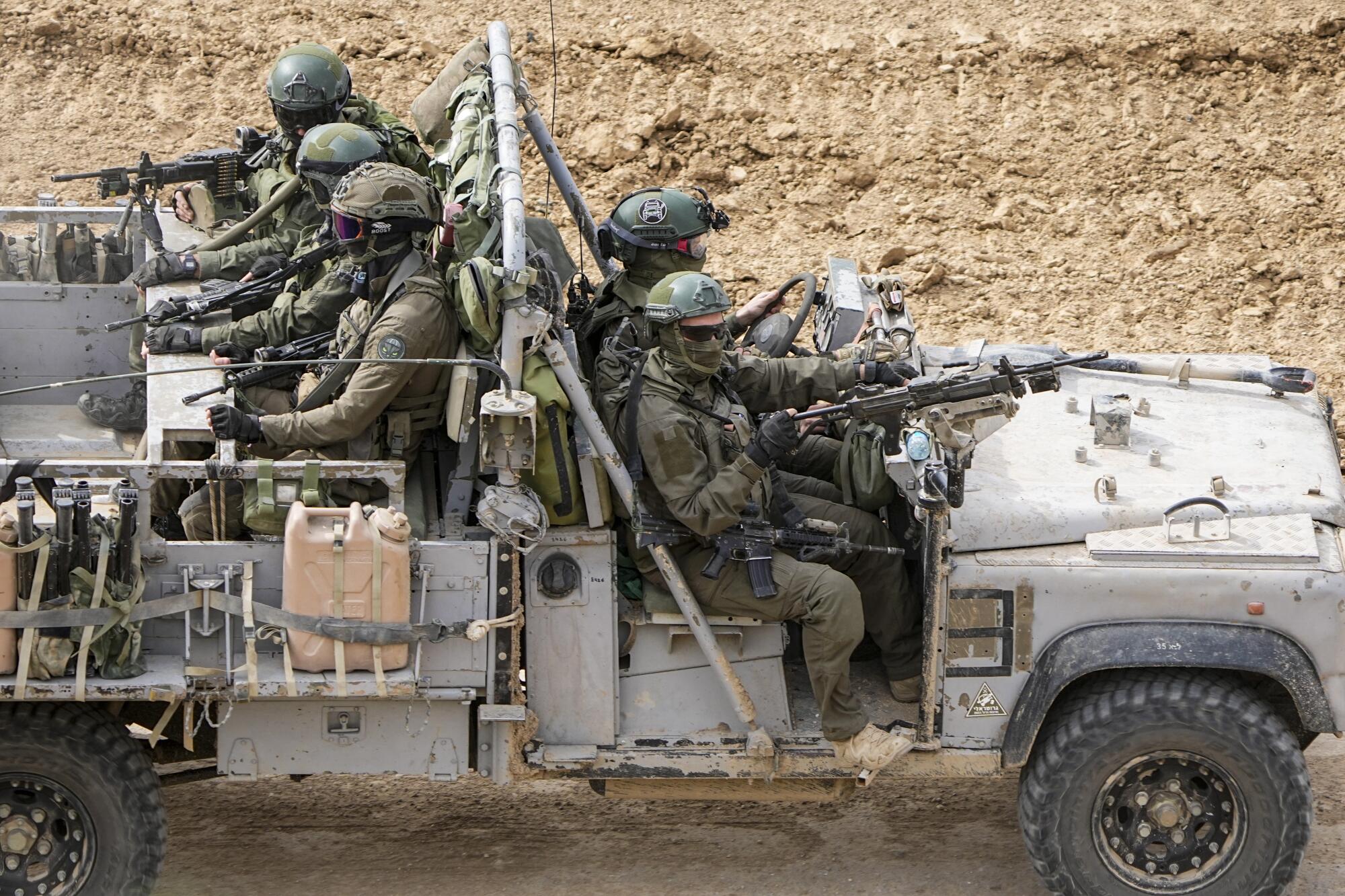
For the 1.4 million people — almost two-thirds of the Gaza Strip’s besieged population — now crammed into this city along the Egyptian border, fears are spreading that an Israeli ground assault in Rafah would leave them with no place to escape.
“The sound of the strikes we heard last night ... you couldn’t imagine it,” said Jamalat al Kurd, a 52-year-old homemaker from Rafah. “You’re too afraid to move because you don’t know what’s coming from above, so we just stayed inside.”
Israeli authorities previously designated Rafah as an area safe from bombardment, causing the city’s population to balloon to more than four times its original number. Six additional families took refuge in Al Kurd’s apartment building alone.
“If they attack Rafah, where can we go? The Egyptian border? The sea?” she asked. A single mother — her husband had died in Israel’s 2009 campaign in Gaza — Al Kurd is taking care of her five kids as well as the children of relatives and friends displaced from other parts of the territory.
“If we leave, whom do I choose to carry?” she asked. “The month-old infant, or the 2-year-old? It’s no choice. Better to be killed with my family than suffer displacement.”
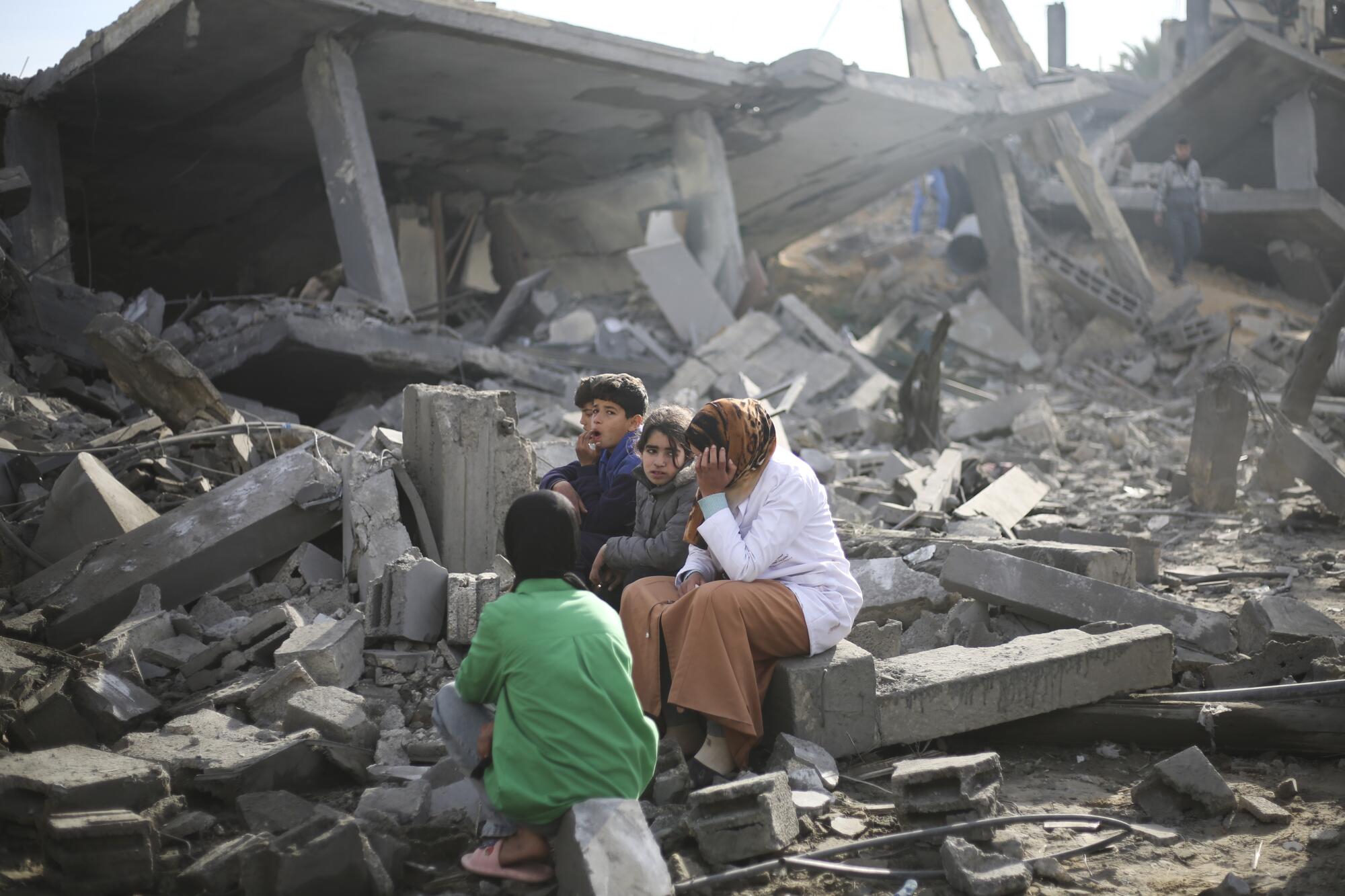
Egypt has warned Israel it will keep its border with Gaza sealed to prevent wide-scale displacement of Palestinians onto its territory with no clarity as to when they can return to the enclave.
Monday’s barrage comes more than four months into the most devastating conflict the Gaza Strip has witnessed, triggered by the militant group Hamas’ blitz operation on Oct. 7, which killed about 1,200 people, two-thirds of them civilians. About 240 Israelis and foreigners were kidnapped and brought back to Gaza, according to Israel’s official tally.
Israel’s retaliatory campaign has so far killed 28,340 people, most of them women and children, health authorities in Hamas-controlled Gaza say. It has destroyed buildings and infrastructure, leveling neighborhoods in the Detroit-sized territory.
Israeli officials say an attack in Rafah now will finish off Hamas and free remaining hostages.
After the nighttime raid that rescued two Israeli-Argentine men — Fernando Simon Marman, 60, and Louis Har, 70 — Prime Minister Benjamin Netanyahu said on social media that “only the continuation of military pressure, until complete victory, will result in the release of all our hostages.”
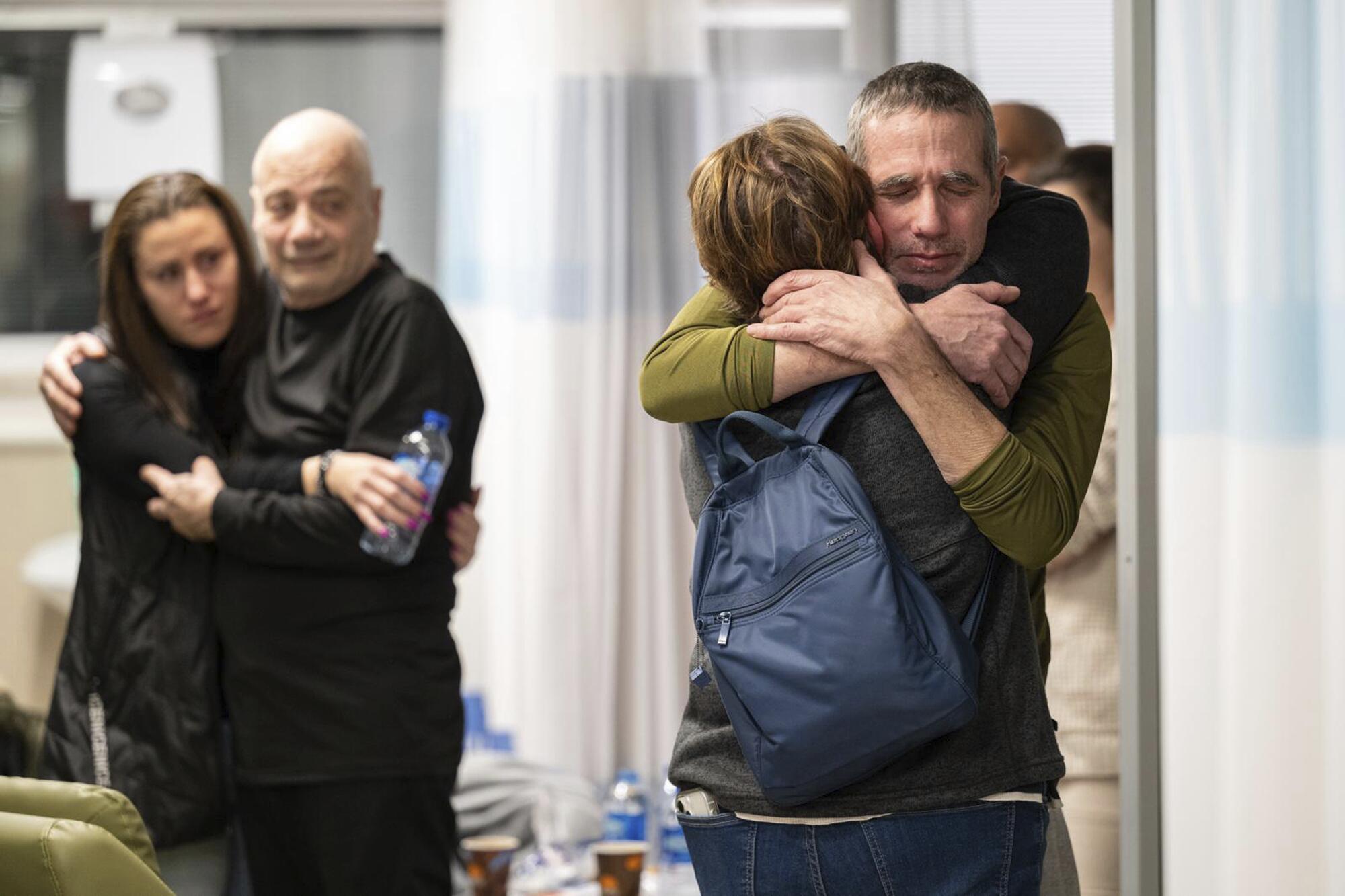
The prospect of such a move has spurred a wave of opprobrium from aid organizations and governments, including some staunch Israel allies.
After meeting with Jordan’s King Abdullah II on Monday, President Biden said an operation in Rafah shouldn’t proceed without “a credible plan” to ensure the safety of those sheltering there.
“Many people there have been displaced, displaced multiple times, fleeing the violence to the north and now they’re packed into Rafah, exposed and vulnerable,” he said. “They need to be protected. And we’ve also been clear from the start, we oppose any forced displacement of Palestinians from Gaza.”
Officials from the U.S., Egypt, Israel and Qatar met Tuesday in Cairo to try to forge another truce in Gaza.
Saudi Arabia, which in recent years has flirted with normalizing relations with Israel, warned of “very serious repercussions.”
Some of the sharpest criticism came from Josep Borrell, the European Union’s top diplomat, who said countries such as the U.S. should take concrete steps to blunt Israel’s military response.
“If you believe too many are being killed, maybe you should provide less arms in order to prevent so many being killed,” he said Monday at a news conference in Brussels.
Hamas, meanwhile, said a Rafah offensive would snarl any negotiations over hostages.
A land incursion would be “catastrophic” for humanitarian deliveries into the strip, said one international aid logistics worker who spoke on condition of anonymity because they were not authorized to comment.
The area around Rafah, including the crossing between Gaza and Egypt and the Kerem Shalom crossing between Gaza and Israel, are the primary routes for delivering aid.
“An attack would essentially put a hard stop on all that, with no guidance on alternate entry points,” the aid worker said, adding that most entities organized their supply chains from Egypt, but those coming in from Jordan would also be affected.
Gazans who sought escape from the violence in Rafah are now wondering whether they should flee once more — and if so, where?
“I left my home in north Gaza more than 3½ months ago, and I’ve yet to find a single square centimeter in Gaza where it’s safe,” said Ziyad al Najjar, 63, who was dismantling his tent and getting ready to move his 16 family members to be closer to relatives in the Zawaydeh neighborhood.
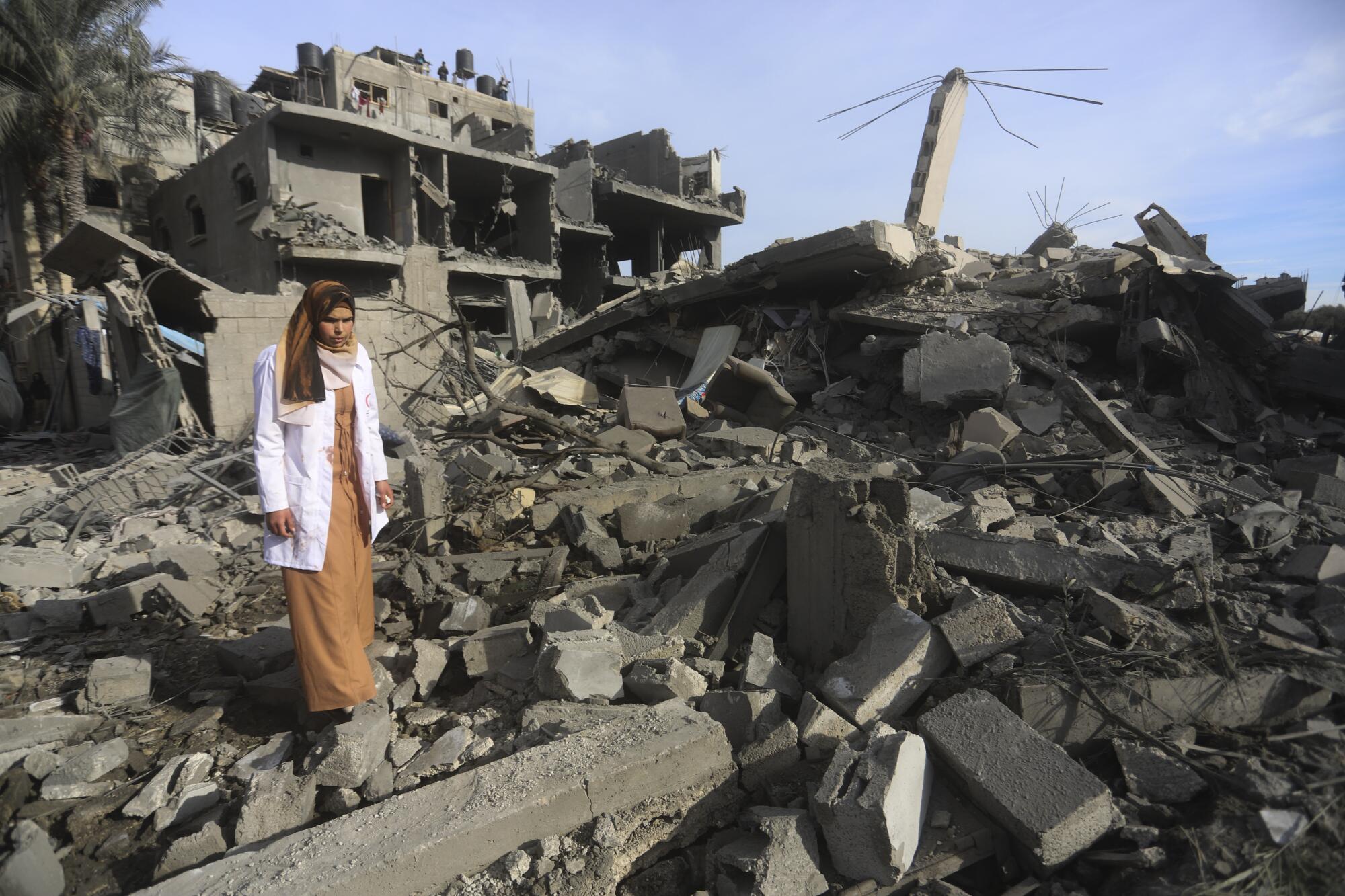
Nearby, Zuhair Khalaf, a retired civil servant from Rafah, was also thinking about leaving the city. He’s been listening to Israeli military officials on various radio stations to figure out the safest destination.
But no options seemed good: He’d heard military officials on Israeli radio saying north Rafah was meant to be safe. But that’s just south of Khan Yunis, he said, where there’s massive fighting now, so how could he go there?
The western part of Rafah, meanwhile, was full of people from north Gaza. To flee east was impossible; that would take them to open fields near the border with Israel where there would be no protection from air attack.
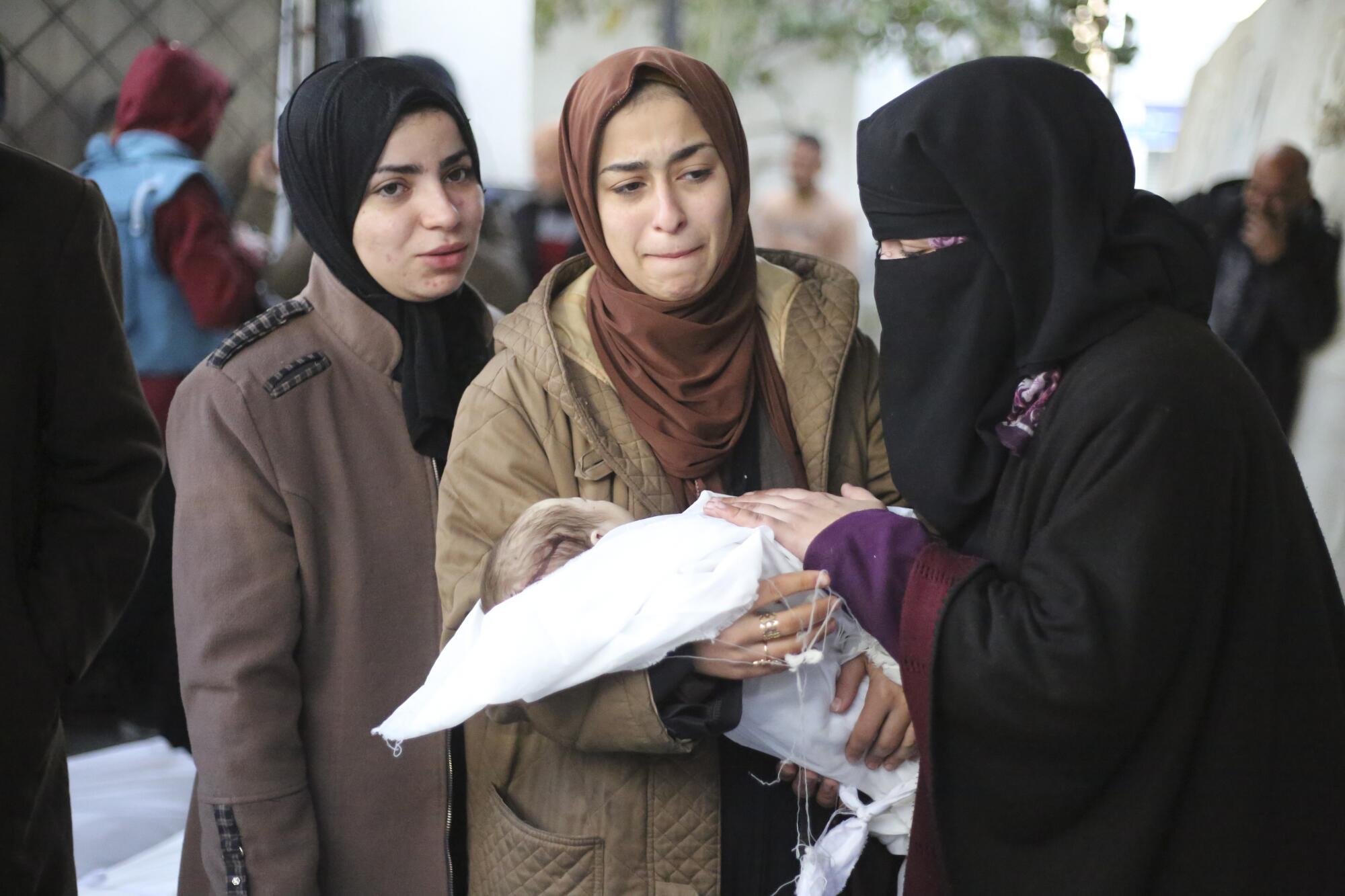
After watching the bombardment Monday stop short of her family home, Ashour said the most she could hope for was that the Israeli army would drop leaflets before the assault reached her, instructing civilians how to move away from the fighting.
“We’re waiting on them to do that,” she said. “We just hope there isn’t a tank in front of our doorway tomorrow morning.”
The Times’ special correspondent in Gaza cannot be named for security reasons. Staff writer Bulos reported from Beirut.
More to Read
Sign up for Essential California
The most important California stories and recommendations in your inbox every morning.
You may occasionally receive promotional content from the Los Angeles Times.

